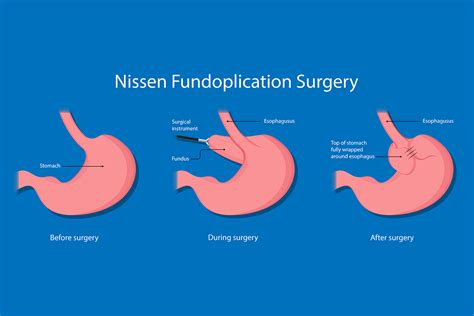Pregnancy Anti Sickness Medication

The miracle of pregnancy - a time of immense joy, excitement, and for many women, morning sickness. While the term “morning sickness” might be a bit misleading, as it can strike at any time of day, the discomfort and nausea it brings are all too real. For some expectant mothers, the symptoms can be so severe that they require medication to manage them. In this article, we’ll delve into the world of pregnancy anti-sickness medication, exploring the options available, their effectiveness, and the essential factors to consider when choosing the right treatment.
Understanding Morning Sickness
Before we dive into the medication aspect, it’s crucial to understand what causes morning sickness. The exact reasons are still not fully understood, but it’s believed to be linked to the significant hormonal changes that occur during pregnancy, particularly the increase in human chorionic gonadotropin (hCG) and estrogen levels. These hormonal fluctuations can affect the digestive system, leading to nausea, vomiting, and other unpleasant symptoms.
Lifestyle Changes: The First Line of Defense
While medication can be an effective way to manage morning sickness, it’s essential to explore lifestyle changes that can help alleviate symptoms before resorting to pharmaceuticals. Some of these changes include:
- Eating smaller, more frequent meals to reduce symptoms
- Avoiding spicy or fatty foods that can trigger nausea
- Staying hydrated by drinking plenty of water
- Getting plenty of rest to help manage fatigue
- Practicing relaxation techniques, such as deep breathing or meditation, to reduce stress
Over-the-Counter (OTC) Medications
For many women, over-the-counter medications are the first line of treatment for morning sickness. Some of the most commonly used OTC medications include:
- Vitamin B6: Taking a daily supplement of vitamin B6, either alone or in combination with doxylamine (an antihistamine), has been shown to reduce nausea and vomiting in some women.
- Doxylamine: An antihistamine that can help alleviate nausea and vomiting, often used in combination with vitamin B6.
- Ginger: Ginger has natural anti-inflammatory properties and has been used for centuries to help alleviate nausea and vomiting. It can be consumed as ginger tea, ginger ale, or ginger candies.
Prescription Medications
If OTC medications are not effective, or if symptoms are severe, prescription medications may be necessary. Some of the most commonly prescribed medications for morning sickness include:
- Metoclopramide: A medication that helps regulate digestion and can reduce nausea and vomiting.
- Ondansetron: An anti-nausea medication often used to treat severe morning sickness.
- Diclegis: A prescription medication that combines doxylamine and vitamin B6, specifically designed to treat morning sickness.
Avoiding Medication: Alternative Therapies
While medication can be an effective way to manage morning sickness, some women may prefer to explore alternative therapies. Some of these alternatives include:
- Acupuncture: A traditional Chinese medicine technique that involves inserting thin needles into specific points on the body to stimulate healing and balance.
- Acupressure: A non-invasive technique that applies pressure to specific points on the body to alleviate nausea and vomiting.
- Aromatherapy: Certain essential oils, such as peppermint and lemon, can help alleviate nausea and vomiting when inhaled.
Essential Factors to Consider
When choosing a medication or alternative therapy to manage morning sickness, there are several essential factors to consider:
- Effectiveness: How well does the medication or therapy alleviate symptoms?
- Safety: Are there any potential side effects or risks associated with the medication or therapy?
- Interactions: Can the medication or therapy interact with other medications or health conditions?
- Cost: What is the cost of the medication or therapy, and is it covered by insurance?
It's essential to consult with a healthcare provider before taking any medication or starting alternative therapy. They can help determine the best course of treatment based on individual needs and health status.
FAQ Section
What are the most common medications used to treat morning sickness?
+The most common medications used to treat morning sickness include vitamin B6, doxylamine, and metoclopramide. However, it's essential to consult with a healthcare provider to determine the best course of treatment.
Can alternative therapies, such as acupuncture and aromatherapy, be effective in managing morning sickness?
+While some women may find alternative therapies helpful in managing morning sickness, the evidence is still limited, and more research is needed to fully understand their effectiveness.
Are there any potential side effects or risks associated with morning sickness medications?
+Yes, like any medication, morning sickness medications can have potential side effects or risks. It's essential to consult with a healthcare provider to discuss the benefits and risks of each medication and determine the best course of treatment.
Conclusion
Morning sickness is a common symptom of pregnancy that can range from mild to severe. While lifestyle changes and OTC medications can be effective in managing symptoms, prescription medications may be necessary for some women. Alternative therapies, such as acupuncture and aromatherapy, can also be explored. It’s essential to consult with a healthcare provider to determine the best course of treatment based on individual needs and health status. By understanding the options available and the essential factors to consider, expectant mothers can make informed decisions and find relief from the discomfort of morning sickness.



